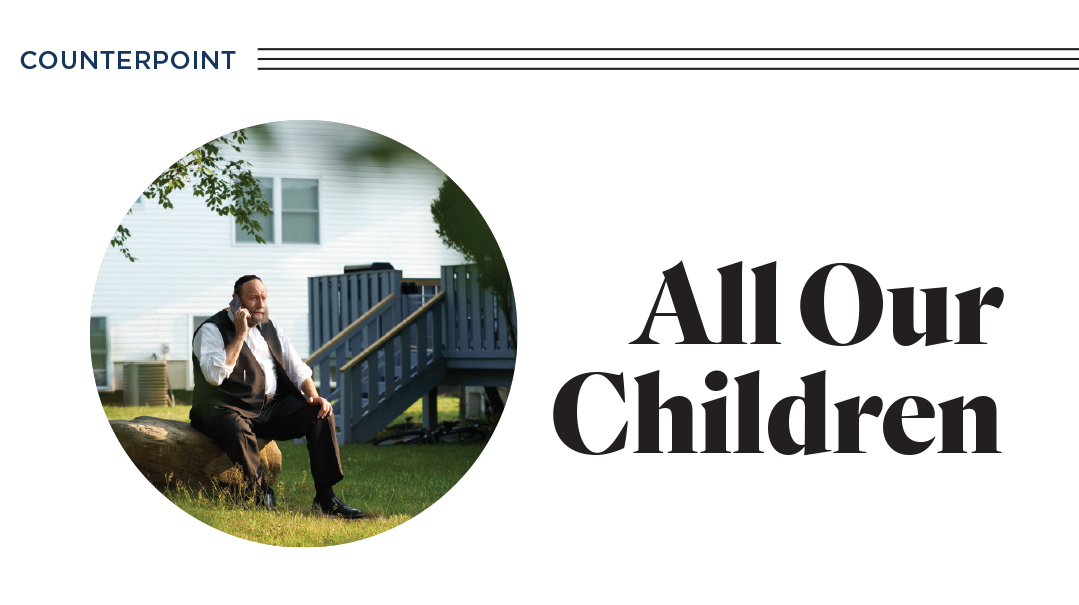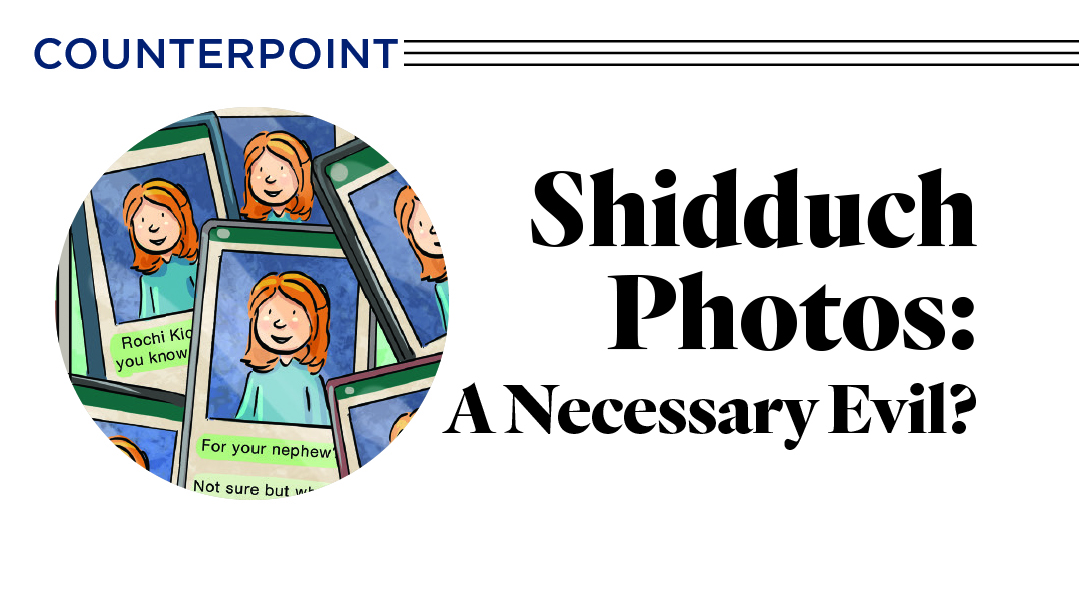Mixed Messages: the Conversation Continues

Last week’s Open Mic piece on the way our publications portray a disparity between our spiritual values and materialistic pursuits drew significant feedback. Below is a sampling

In Context — Dina Koppel
Y
osef Weiss articulated some excellent points in his Open Mic piece responding to the wedding expenses articles.
But reading it through, I found myself wondering: When did it happen that a magazine became an influencer of our ideals and life decisions?
I don’t know about anyone else, but I read magazines for pure entertainment. I enjoy reading about people and places that I wouldn’t otherwise have access to, I like a good story or a thought-provoking op-ed, and it’s relaxing to flip through pages of beautiful photographs, yes, even the over-the-top tablescapes and high-end clothing ads, neither of which are in my league.
Today we’re lucky enough to have this form of entertainment packaged with personalities and messages that are generally in line with our community’s morals and lifestyle — something that was not the case 20 or more years ago — but who said these periodicals should be replacing basic common sense and people’s ability to set the tone in their household according to their hashkafos?
I am not belittling the vast influence and impact that magazines like Mishpacha have on our society, I am merely attempting to put things into context. Outside influences will always exist — in fact, previous generations had to contend with all forms of mainstream popular culture to fill the “entertainment” aspect of their lives, without any kosher alternatives — but the responsibility to maintain appropriate boundaries and hashkafos lies on each individual or couple regardless.
Creative Opportunity — Nechama G., Lakewood NJ
I
’m a young mother who doesn’t have the biggest budget for clothing, home décor, or vacations. Most of the ads in the frum publications don’t seem so realistic to me — I look at them to get a basic sense of what’s in style, but I don’t usually shop there. But there is something different that I appreciate in the “gashmiyus” parts of the magazines.
Back in high school and camp, I was one of those girls who was always busy with my hands — scenery, props, centerpieces, that was me. Today I’m baruch Hashem married and a mother, but to be honest, I still miss it.
I don’t think I’m the only young woman who is creative, good with her hands, understands colors, and feels a bit let down that much of my life is about parnassah, doing the laundry, and packing up sandwiches. When I have a chance to express my creativity in some way, it fulfills that part of me and makes me so much happier.
This is one of the reasons I love seeing creative new ideas for things like upsherens or Purim tables. Many of these ideas are not high-end or very expensive. And even if some of them are, I’m the type of person who can figure out my own way to reproduce a “look” or color scheme on a very limited budget.
Maybe you can’t relate to it, but for me, spending the time spray-painting or creating cute little centerpieces really satisfies something inside of me — just like reading about the latest Trump controversy might satisfy someone else.
If you come to the next upsheren I make, it will probably have some sort of theme and color scheme, it will have cute and creative touches, and it will bring me a certain type of happiness that I only get after spending hours using my talents to create something adorable or beautiful. It doesn’t mean that I’m a terribly materialistic person or that I’m in a “rat race” or that I’m wasting tons of money I don’t have. It means that Hashem’s world is full of color and beauty, and that we can use those gifts to enhance our simchahs and our lives.
I’m grateful to our frum magazines for constantly giving me new ideas and showing me that no, it’s not over when high school and camp end, that a creative, frum, committed Jewish woman can allow her gifts to spill over and enhance every simchah she makes.
And now please excuse me, I need to run out to the dollar store to get some items for my Rosh Hashanah table.
Reflecting Our Problem — Rifka Saltz, Far Rockaway, NY
T
he point brought out by this week’s Open Mic piece by Yosef Weiss — the fact that magazines like Mishpacha give readers mixed messages — is not a chiddush. We have been discussing this and other discrepancies (think glossy Chinese auction brochures) for a long time.
That publications need advertising dollars to exist is a problem akin to our seminary acceptance issue, to our flawed shidduch system, to our elitist yeshivah system, etc.
These problems are issues that gedolim and lay people alike grapple with. Sometimes these problems are attributed to non-Jewish values filtering into our more spiritual value system. But objectively, let’s examine which way the osmosis going.
Look around our communities — do we see non-Jews razing homes and laying foundations for mansions? Our residential streets for the most part have a few average-size older homes, but are dominated by uber-large homes. Clearly the trend is toward the mansions.
Who is responsible for nail salons proliferating on every street? Are we the owners of these establishments, or are we the patrons? How many jewelry stores does our community support? And let’s not forget the sheitel salons featuring long, wavy, and oh, yes, “highlighted” manes.
In most of these situations, we are the ones raising the bar in gashmiyus. One can speculate the reasons for this, but the fact remains that the guilty party is us, the readership, and not the publications that reflect our culture.
We can actually say the opposite. Baruch Hashem, thank G-d that the text of our publications state the true morals, values, and ideals of our culture in contrast to the advertisements. Thank G-d the real messages are found in the written words of our magazines and newspapers, not in the advertisements. And hopefully these messages are filtering in, reminding us of who we are and who we should be. Most of us pay more attention to and take to heart the printed words and consider the advertisements the fluff that we have to gloss over in order to support the printed words.
Mishpacha and our other Orthodox publications are not the problem — they reflect the problem. The problems are systemic challenges for the wiser minds among us to tackle. Our role is blessedly lighter: to read, pause, think, perhaps discuss, and flip the page.
(Originally featured in Mishpacha, Issue 778)
Oops! We could not locate your form.






Comments (0)